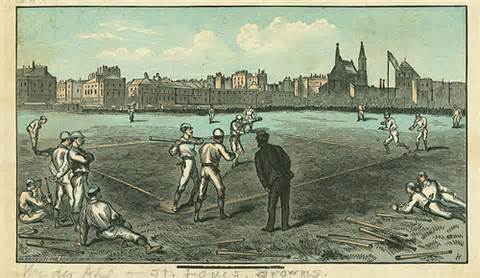
Today’s commentary is from the Rev. J.T. Crane, a writer without his own blog, most likely due to the fact that he’s been dead for well over a century. Here he mocks, condemns, and predicts the demise of what we today would call ‘professional baseball’, although his criticisms would apply equally well to any of the decadent sports – football, basketball, curling, etc. (Not hockey, of course – as the true Sport of the Gods, it alone is pure of intention and deed.)
I find this piece amusing in its own twisted little way, but in sharing it I have no intention of actually slandering baseball or any other sport. If you nevertheless feel slighted by the Reverend’s words, don’t take it personally – he was far harsher on the theater, novel-reading, and the ultimate time-waster and brain-killer, chess.
Chapter V: “BASE BALL” (From Popular Amusements by Rev. J.T. Crane, published 1869)
“And the people sat down to eat and drink, and rose up to play.” Exodus xxxii, 6.
“…in the ancient and honorable way, carelessly, hilariously…”
Base ball may be made a very pleasant amusement, wholly unobjectionable either in regard to health or morals. Many of our readers well remember how it used to be played by the village school-boys. Two of the best players volunteered, or were elected by acclamation, to organize the two “sides.” The leaders tossed up a bat, with a mark on one side of it, to determine the first choice. The winner looked around the circle of boys and made his selection; then the other leader named a boy for his side, and so it went on, by alternate selections, till all were enrolled. The bat was again tossed up, to determine who should be “in” first, and then the play began.
 How they knocked the ball, and ran and threw the ball at each other, and fell down in their eagerness to avoid being hit, and laughed and shouted, and grew hot, and red, and finally weary! No crowd of excited spectators were there to applaud special acts of skill, and thus spoil the sport; no “scorer” noted down in his book the number of “runs” or of “fly-catches;” no representative of the public press was there, to prepare an extended and eloquent report, confounding simple readers with his vocabulary of new terms; no body inquired which side was victorious, and all were happy.
How they knocked the ball, and ran and threw the ball at each other, and fell down in their eagerness to avoid being hit, and laughed and shouted, and grew hot, and red, and finally weary! No crowd of excited spectators were there to applaud special acts of skill, and thus spoil the sport; no “scorer” noted down in his book the number of “runs” or of “fly-catches;” no representative of the public press was there, to prepare an extended and eloquent report, confounding simple readers with his vocabulary of new terms; no body inquired which side was victorious, and all were happy.
And in these later days, if a score of young men or older men would provide a basket of refreshments, and go out into the fields by themselves and play two or three hours, in the ancient and honorable way, carelessly, hilariously, not even noticing who makes the most “runs,” they would all feel the better the next day; and the wit and humor elicited on the occasion would echo in twenty home circles for weeks to come.
“…base ball has become a ponderous and elaborate affair…”
But since it attained the dignity of being our “national game,” base ball has become a ponderous and elaborate affair. Rules as rigid as those which govern the proceedings of the Congress of the United States are fixed, by general councils of men learned in the art, and goodly volumes are published discussing the size, shape, and weight of balls and bats, and determining the proper distances between the bases. Associations are formed, who assume a name, devise a uniform, and have initiation fees and monthly dues.
 The formation of the club, the selection of the members, is a very serious business, involving, as it does, the fortunes of the fame of the association in its future contests for championships and newspaper honors. Young men are in demand who are willing to devote their whole time and mental energies to the acquisition of dexterity in throwing a ball or catching it. Professional players are found, who are recruited from that idle, shiftless, and yet ambitious class of mortals who are ready to work with the energy of giants one day in the week at any useless task, provided they have the privilege of lounging about the other six days, boasting of their feats and basking in the admiration of all the little boys in the neighborhood.
The formation of the club, the selection of the members, is a very serious business, involving, as it does, the fortunes of the fame of the association in its future contests for championships and newspaper honors. Young men are in demand who are willing to devote their whole time and mental energies to the acquisition of dexterity in throwing a ball or catching it. Professional players are found, who are recruited from that idle, shiftless, and yet ambitious class of mortals who are ready to work with the energy of giants one day in the week at any useless task, provided they have the privilege of lounging about the other six days, boasting of their feats and basking in the admiration of all the little boys in the neighborhood.
These professionals train as carefully as prize-fighters, and are, in fact, the same style of men drawn mild. In some cases they hire themselves to the club for a single exhibition game; in others, they engage for the season. Their pay is ridiculously high, considering the service rendered. We hear of a club that secured one player for a thousand dollars for the season. Another player was induced to change his residence from one city to another, and was set up by his employers in a store, with a stock costing fifteen hundred dollars, by way of securing his valuable aid on great occasions.
When the club is organized, there must be daily practice for the benefit of the novices. This is done often to the neglect of every thing else, to the sore annoyance of parents and employers, and when a good degree of skill is supposed to be gained another club, fifty or five hundred miles away, is invited to meet in friendly contest. The newspapers announce that the Exotics have challenged the Cupids, name the time and the place, and express an ardent hope that the weather will be propitious.
“…a supper, of which wine-bibbing generally forms a prominent feature…”
 The eventful day arrives; “play is called,” and the contest proceeds with all spirit and vigor. They pitch, they bat, they run, they pant, they grow red in the face, they perspire, they strain their muscles and rend their garments in superhuman effort… There is no brain power to spare on pleasantries, no surplus breath to waste in laughter. Awkward episodes occur. A head is broken by an erring bat, or a finger by a ball, or two players, running with upturned faces and outstretched hands to catch the same descending ball, rush together with a fearful thump, and fall backward in collapse. Perhaps proceedings are still further diversified by the occurrence of a little fight.
The eventful day arrives; “play is called,” and the contest proceeds with all spirit and vigor. They pitch, they bat, they run, they pant, they grow red in the face, they perspire, they strain their muscles and rend their garments in superhuman effort… There is no brain power to spare on pleasantries, no surplus breath to waste in laughter. Awkward episodes occur. A head is broken by an erring bat, or a finger by a ball, or two players, running with upturned faces and outstretched hands to catch the same descending ball, rush together with a fearful thump, and fall backward in collapse. Perhaps proceedings are still further diversified by the occurrence of a little fight.
The game in due time ends, and one party or the other is declared victors by so many “runs,” and the winners and the losers adjourn to a hotel and refresh themselves with a supper, of which wine-bibbing generally forms a prominent feature. Speeches, too, are made by the talking members of each club, expressive of the most intense admiration of each other’s prowess, and breathing unutterable friendship.

The reporter, who has been presented with a complimentary ticket for this very purpose, takes notes of what is said and done, and the next morning the newspaper lays before an admiring world the important intelligence that “the pitching of the Cupids was superb, the batting of the Exotics was magnificent, the fielding of Jones and Smith elicited universal applause, the supper was all that an epicure could desire, and the wit and eloquence of Mr. Brown’s speech were equaled only by the beauty and pathos of Mr. Jenkins’ reply.”
While an agitated world is laboring with this startling announcement, the principal performers stay at home and rest, or limp wearily out to the apothecary’s to make investments in pain-killers and strengthening plasters. And this, forsooth, is the great National Game. It has scarce a single feature of real recreation…
“…in due time the novelty of the whole thing will be gone…”
The game itself is not in fault. In its simple forms, pursued in moderation, with right associations, as a recreation, and not as an ambitious show, it can be heartily recommended to young men who need some active outdoor amusement. It may thus be made a very pleasant and not unprofitable thing. In its preposterous form, inflated into a “great national game,” it is very laborious, very expensive in time and money, and not altogether safe for soul or body. It is then not an amusement, but a pretentious and useless display, whose highest reward is the shallow applause of the idle and the vain.
It may be hazardous to one’s reputation for sagacity to predict the downfall of any fashionable thing on the ground that it lacks the basis of good sense; still, I will say that the modern bubble has been blown so big, that it seems to me that it must collapse before long… In due time the novelty of the whole thing will be gone, and then comes the end…


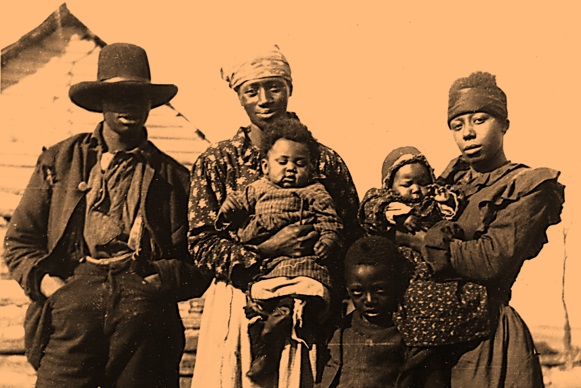
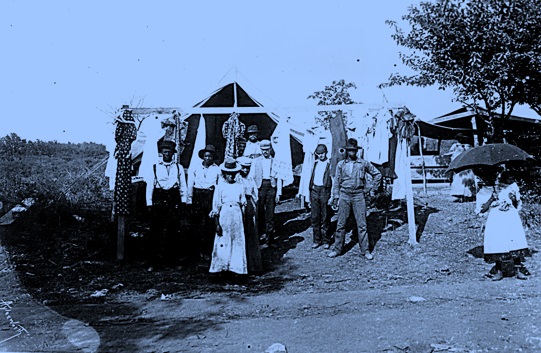
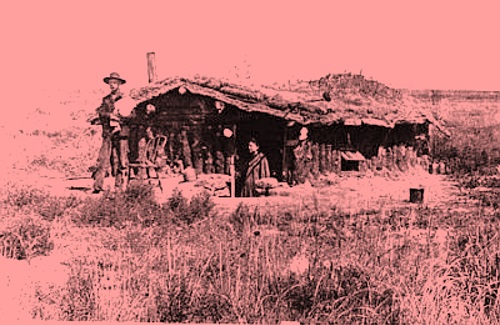
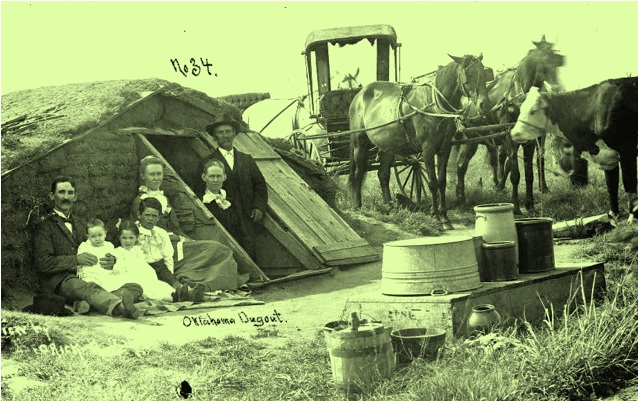
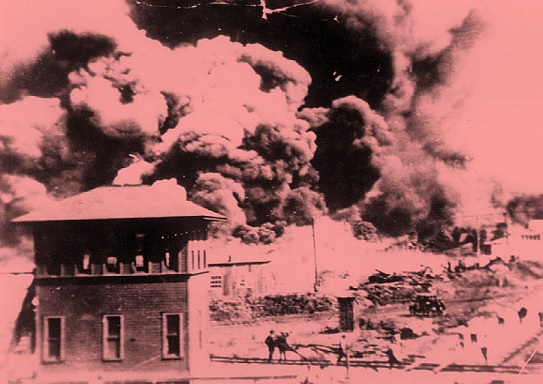
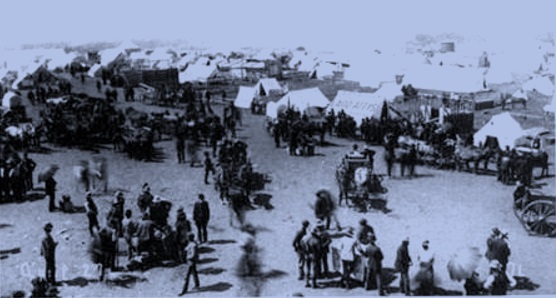
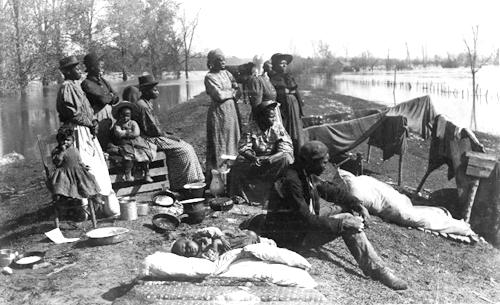
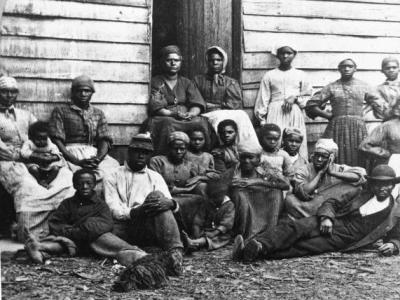
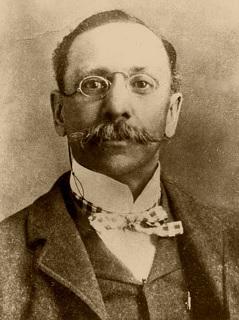
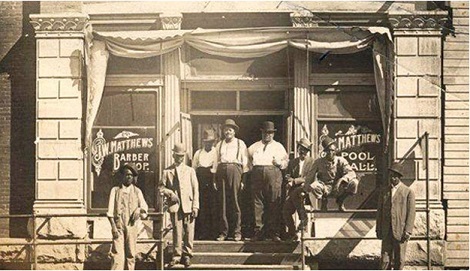
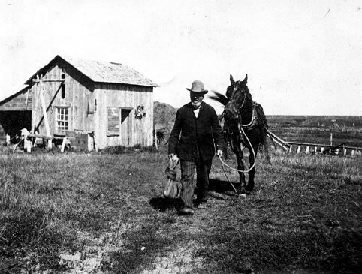
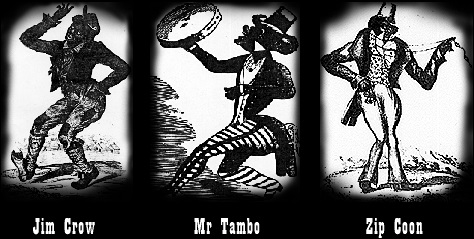
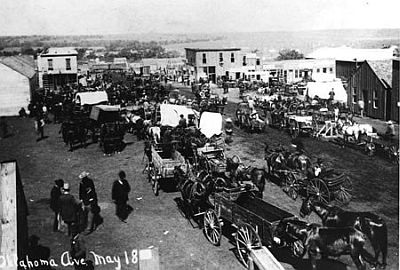
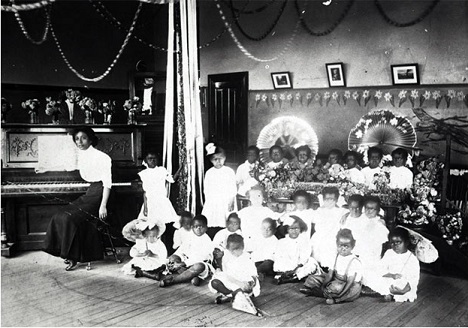
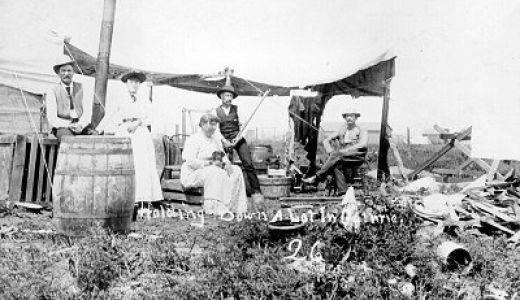
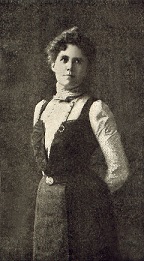 I may have mentioned how giddy I was to come across a wonderful piece by Helen Churchill Condee in Harper’s Weekly, from way back on February 23, 1901. When you combine insight, knowledge, and pithy writing, you have my heart forever.
I may have mentioned how giddy I was to come across a wonderful piece by Helen Churchill Condee in Harper’s Weekly, from way back on February 23, 1901. When you combine insight, knowledge, and pithy writing, you have my heart forever.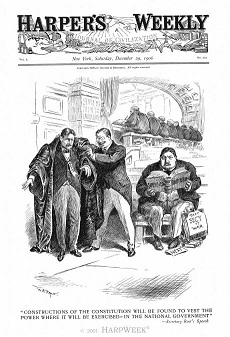 Candee moved to Guthrie, Oklahoma, for several years, writing regularly for periodicals back east. It was around this time she published her first two books – How Women May Earn A Living and An Oklahoma Romance. The first became a landmark in women’s literature (a subject for another time) and the second – her only work of fiction out of the many successful books she’d continue to write – helped publicize and glorify life in the recently opened territory.
Candee moved to Guthrie, Oklahoma, for several years, writing regularly for periodicals back east. It was around this time she published her first two books – How Women May Earn A Living and An Oklahoma Romance. The first became a landmark in women’s literature (a subject for another time) and the second – her only work of fiction out of the many successful books she’d continue to write – helped publicize and glorify life in the recently opened territory. 
 At that moment, it was still all about land – farming, growing, raising, living land. And this was it. Everything else was pretty much taken. The bar was closing and the men outnumbered the women 3 to 1. Time to make your play.
At that moment, it was still all about land – farming, growing, raising, living land. And this was it. Everything else was pretty much taken. The bar was closing and the men outnumbered the women 3 to 1. Time to make your play. 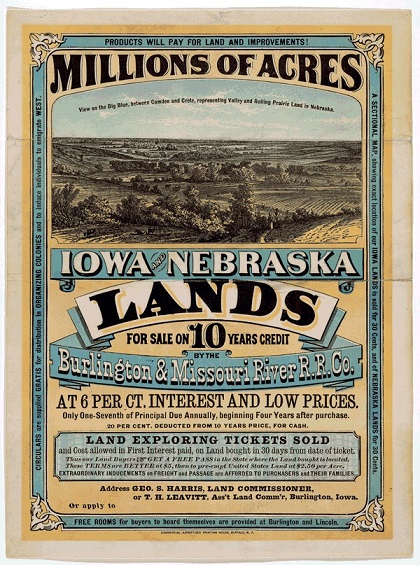 The allotment size was consistent with the Homestead Act from way back in 1862, signed by Lincoln during the Civil War. This was considered a sufficient spread to allow a homestead and plenty of planting land. A free man working without modern equipment would be unlikely to cultivate more than this productively.
The allotment size was consistent with the Homestead Act from way back in 1862, signed by Lincoln during the Civil War. This was considered a sufficient spread to allow a homestead and plenty of planting land. A free man working without modern equipment would be unlikely to cultivate more than this productively. 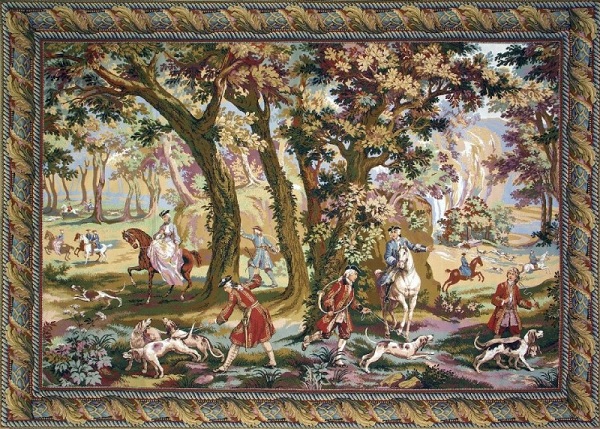 How many others in that generation and prior had taken their shots, staked their claims, virtually everywhere else in the West? Those waiting now were the also-rans, the coulda-beens, desperate for one last chance at stepping into the role of Yeoman Farmer in the most democratic manifestation of the ideal. Redemption? Maybe so.
How many others in that generation and prior had taken their shots, staked their claims, virtually everywhere else in the West? Those waiting now were the also-rans, the coulda-beens, desperate for one last chance at stepping into the role of Yeoman Farmer in the most democratic manifestation of the ideal. Redemption? Maybe so.